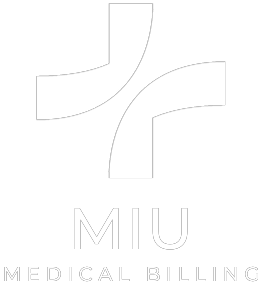Medical billing services, in the complex landscape of healthcare administration, play a pivotal role in ensuring the financial well-being of medical practices. A medical billing system that is efficient not only helps to optimize revenue cycles, but it also improves overall patient care by enabling healthcare providers to concentrate on what they are most skilled at doing, which is providing great medical care. In this article, we will go into the specifics of how much medical billing services cost, as well as the reasons why investing in them is an essential component of a successful healthcare business.
Understanding the Importance of Medical Billing Services:
Before delving into the price of outsourced medical billing services, let us first understand their core role. Medical billing services include the filing, management, and processing of healthcare claims to insurance companies, ensuring that healthcare providers are properly reimbursed for their services.
Effective medical billing services help to:
- Revenue Optimization: Accurate and timely billing increases the chance of fast payments, which ensures a continuous cash flow for medical practices. This is one of the contributions that effective medical billing services also provide to revenue optimization.
- Reduced Errors: Professional billing services are equipped with the knowledge and expertise to minimize errors in the submission of claims, hence minimizing the risk of claim denials and delays. Professional billing services also reduce the likelihood of claims being denied.
- Compliance: Keeping up with the ever-evolving government rules that govern healthcare is a challenging endeavor. Compliance is a specialty of medical billing services, which helps to reduce the likelihood of legal difficulties taking place.
Factors Influencing Medical Billing Service Costs:
Several factors influence the cost of medical billing services, making it critical for healthcare providers to select services that are tailored to their individual requirements. Let’s look at these things in more detail:
- Practice Size and Complexity: It is important to note that the cost of medical billing services is substantially impacted by the size and complexity of a medical practice. When it comes to billing solutions, larger practices that provide a wider range of services could demand more complex versions.
- Technology Infrastructure: Billing procedures that are more precise and efficient are a direct result of the utilization of more advanced billing technology and software. The additional prices that may be associated with these technologies, however, are subject to change depending on the service provider.
- Staff Expertise: It is possible for the entire cost to be affected by the level of competence and experience possessed by the medical billing staff. The billing process can be considerably improved in terms of both accuracy and efficiency when highly competent specialists are involved. However, these professionals may charge higher prices.
- Outsourced vs. In-House Billing: Another factor that can effect expenses is whether or not medical billing services are outsourced or whether or not they are kept in-house. On the other hand, in-house billing may need expenditures in both training and technology, whereas outsourcing can reduce the costs associated with employment.
Understanding the Cost Structure:
Medical billing services often use many price models, and it is critical for healthcare practitioners to understand these structures to make sound judgments. Typical pricing models include:
- Percentage-based: Some billing services charge a percentage of all income collected. While this aligns the service provider’s interests with those of the healthcare practice, it may result in increased expenses for more successful practices.
- Flat Fee: Another commonly used strategy is to charge a fixed monthly fee. Costs are predictable regardless of the volume of claims processed.
- Per-Claim Basis: A per-claim pricing approach assesses a cost for each claim processed. This can be cost-effective for smaller practices with modest claim volumes.
Conclusion:
Investing in expert medical billing services is a strategic decision that can improve a healthcare practice’s financial health and operational efficiency. While the expenses of medical billing services can vary, the advantages of accurate and timely billing are undeniable. As the healthcare landscape evolves, collaborating with reputable medical billing services allows physicians to focus on providing excellent patient care while leaving the intricacies of billing to experts.
Finally, understanding the elements that influence prices and the various pricing models available allows healthcare providers to make more informed decisions when choosing the best medical billing services for their specific needs. Choosing the best medical billing services partner is more than a financial decision; it is a strategic investment in a healthcare practice’s long-term success.




